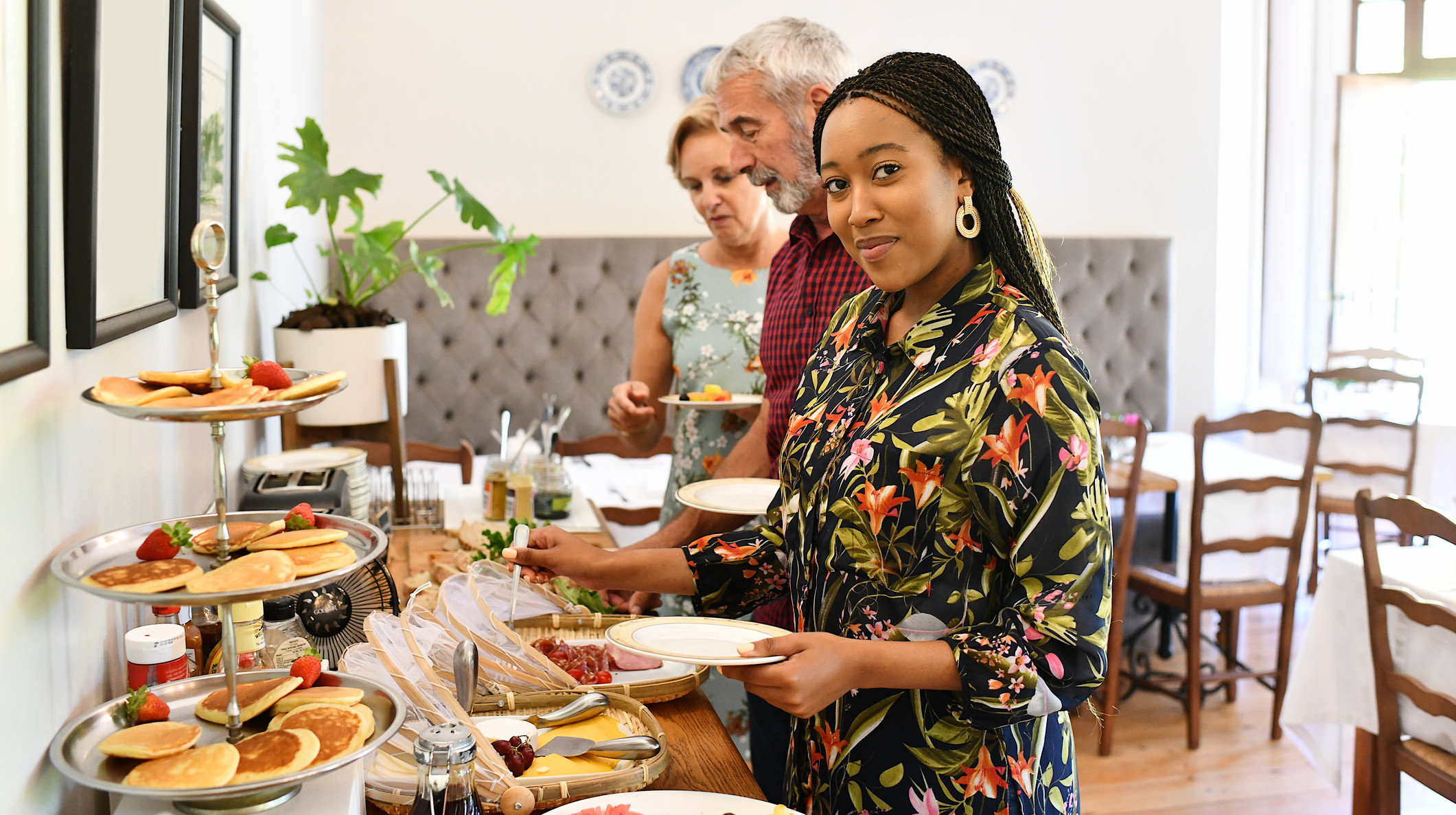Goodbye Breakfast Buffet, Goodbye
Some people get excited about fancy hotels because they get to soak in whirlpools or sleep in sheets with high thread counts or steal tiny bottles of expensive bath products. All those things are great. But for me, the greatest thing of all is the breakfast buffet. The best ones extend for tables and tables, with platters of fresh fruit and pastries and chafing dishes filled with bacon and sausage and potatoes and French toast sticks (no one has ever figured out how to make those scrambled eggs taste good) and sometimes, if you're really lucky, fresh-sliced ham and a pyramid of orange halves that you can squeeze into juice. Sometimes I still dream of great breakfast buffets I have known.
And now I will dream of them forever, because the days of the breakfast buffet are gone, gone, gone, just like the smoking section of the hotel bar.
Eater recently talked to scientists who enumerated all the reasons why breakfast buffets cannot survive in the age of COVID-19. "Buffets are potentially where lots of people crowd together with the sharing of utensils, potential transmission of fomites," said John Nicholls, a professor of pathology at the University of Hong Kong. A group of Japanese scientists put a buffet under a ultraviolet light to prove that, yes, this actually does happen.
Instead, hotels are inventing new ways to serve their guests food in the morning: breakfast bags, expanded contact-free room service, conveyor belts, tableside service (and very tired servers), and, at the Hotel Monte-Carlo Bay in Monaco, breakfast served on a floating tray in a lagoon. (This costs €130, plus an extra €80 for non-guests, but it does include a glass of Veuve Clicquot Champagne, so there's that.)
None of these, however, replicates the glorious experience of filling a plate with as much food as you want, even food you don't want but are curious to taste, just to revel in the sheer abundance of breakfast, the best meal of the day.
Farewell, breakfast buffet. Farewell, old world. Farewell, youth.
